BBC commissioner Shane Allen talks about Landmark Sitcom Season interview
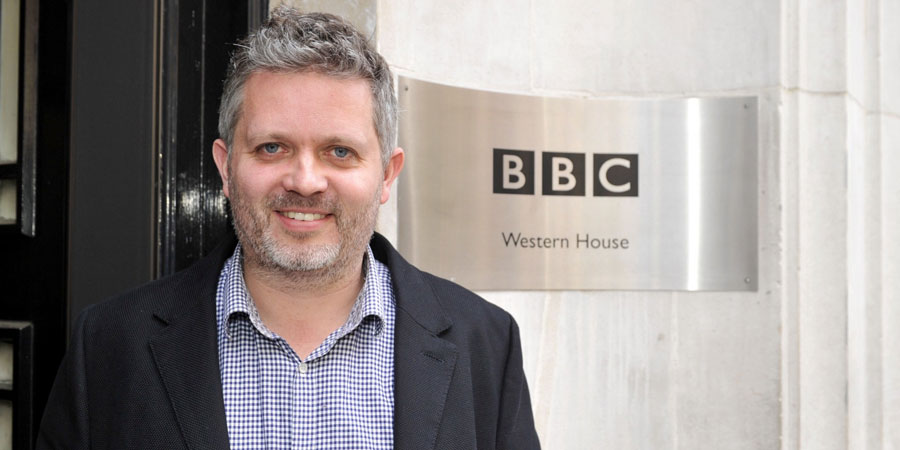
As the BBC prepares to launch a special Landmark Sitcom Season of programming next weekend, we sat down for an exclusive chat with its mastermind and possibly the most influential man in contemporary British comedy, head BBC TV comedy commissioner Shane Allen, to discuss the BBC's legacy, his own love for the genre, and what Landmark Sitcom Season has to offer.
What is Landmark Sitcom Season? How did it come about?
Well we have that thing every year where we have a massive moment for comedy at Christmas. Comedy is sort-of top of the tree at that time, getting massive audiences. It sprang from there, and my having a conversation with Charlotte Moore [Director of Content - responsible for BBC One, Two, Four and iPlayer] about how we could have a national discussion about comedy outside of Christmas, and celebrate the genre.
The point of this season is that comedy is not just for Christmas - comedy is for life!
At the BBC we regularly run seasons of programming on a specific theme, but they tend to be quite lofty and mark anniversaries of quite sombre and serious topics, and this is a chance to reverse that and celebrate the legacy of the great British sitcom. Repeats of Dad's Army are still regularly the most-watched comedy on television, so it's jumping off from there. The BBC's got this enormous heritage because it's proper public service. Other broadcasters have fallen away from their commitment to comedy but the BBC's always stuck with it, so it was a question of how we recognise that legacy and also shine a light on what we're doing at the minute; the contemporary stuff.
That's why Landmark Sitcom Season is very much a cross-channel portfolio approach. We're doing heritage, mainstream, legacy titles on BBC One; some really new, pioneering, interesting stuff on Two; showcasing a new-wave of talent on Three; and on Four let's right some wrongs and bring to life some scripts where episodes were wiped, and we lost a bit of comedy history.
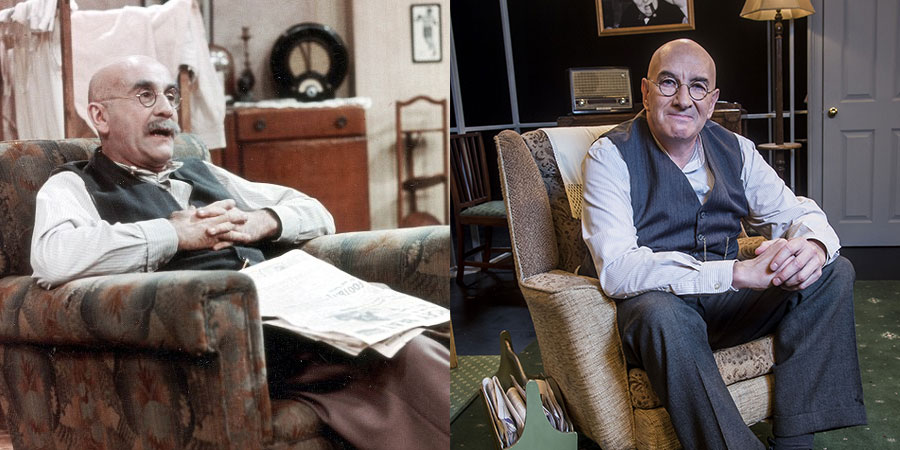
On another level, we also want to introduce these writers to new audiences, new generations. Comedy plays well on the digital channels like Yesterday and Gold - all those heritage sorts of channels. But in terms of terrestrial television, I wanted to reintroduce some of the pieces to new audiences and to celebrate these amazing 'comedy royalty' writers, whilst they're still able to turn out brilliant work.
The idea of having the blessing of Clement & Le Frenais, Roy Clarke and Marks & Gran - it's incredible. It's an enormous privilege.
I just hope people are entertained and laugh! It'd be lovely if younger generations discover some of the classics, whether it's through our documentary [British Sitcom: 60 Years Of Laughing At Ourselves] or through The Lost Sitcoms or the BBC One revivals - it'd be nice for different people, different generations, to share their tastes and influences. For BBC Two it'd be lovely if people can engage with the newer things and maybe one or two of those will be favoured enough to go to a full series. That will have made the whole thing worthwhile.
Is there a longer term plan to build on Landmark Sitcom Season, or is it just a block of programming in its own right?
To be honest it was conceived as just a celebration of sitcom. You get those articles from time to time going "mainstream comedy is a thing of the past", and this is a way to really say "no" and to shine a light. People still love these shows - Miranda, Mrs. Brown's Boys, Car Share - they're as big as sitcom has ever been, and yes there's a lot more competition for peoples' attention and a lot more choice of what people can watch; but we're here to celebrate a legacy and also embrace the contemporary.
Not Going Out is now the longest-running comedy on BBC One and goes from strength to strength in my opinion. These shows matter, and it's just to say so, and to point out that these shows are huge and are a part of our national identity, our culture. Other genres can be a bit more disposable and ephemeral, but comedy is something that, in an on-demand world, people will demand and they stick with it. We see huge leaps in audiences from TV broadcast to the final consolidated figure. The Mrs. Brown's Boys live special in July got 6.9 million viewers overnight, then with iPlayer added in it was about 11 million.
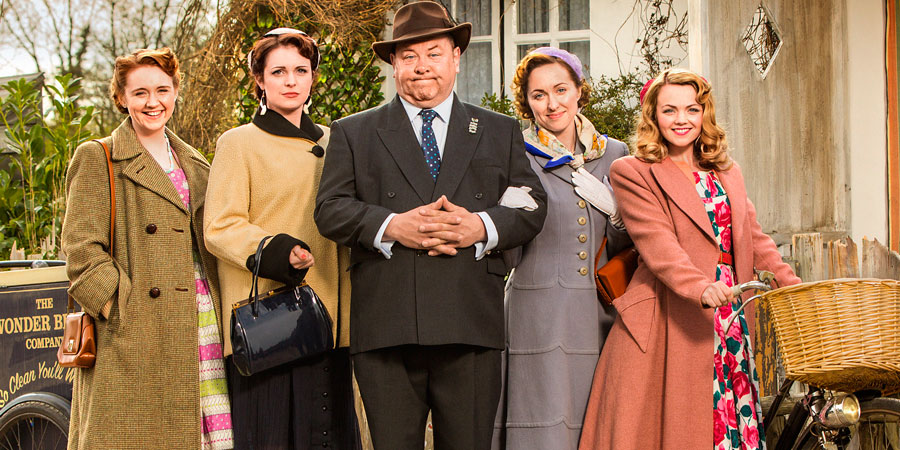
I only have one passion in life - comedy - and I get frustrated when I see those articles saying mainstream comedy is dead or "why do we have canned laughter?" - they're just not true. I hope Landmark Sitcom Season goes a way to showing that people love mainstream comedy.
One of the shows we've got is a BBC Four documentary, British Sitcom: 60 Years Of Laughing At Ourselves, and that traces the whole genre. Comedy is as good and as rich now as it's ever been - and it's probably more varied. Can't we appreciate the fact that there can be a broad spectrum of comedy? We should respect the amazing talents and writers who make these shows.
Despite those huge viewing figures, mainstream comedy seems to be on the receiving end of a lot of snobbery and gets a lot of flak in media circles, from critics, and from the press. How do you approach that? There's already been some criticism ahead of Landmark Sitcom Season...
People have focused on the revivals, primarily, and based a lot of opinion on that. But the season was conceived to be much broader and offer more of a balance across the four channels, balancing the contemporary with the classic. I can see why some people have jumped on that, because they have a vested interested and love the original. It happens whatever the brand it is, from Doctor Who to Harry Potter.
You could knee-jerk against that criticism, but we're starting this big national debate about comedy. That's quite an amazing thing to achieve so I'm pleased with the reaction, I'm pleased that Are You Being Served? got its pictures into all the national newspapers because it shows how deep a chord comedy strikes with the audience.
The media bubble is a lot of the same people who like these quite acerbic comedies. You've got to remember what audiences love: The Royle Family, Peter Kay and Mrs. Brown's Boys - things that reflect their lives.
At the end of the day, everything we make, we're not making it for critics. We're making it for the audiences. You want the audience to watch shows and love them and take them to heart. It's nice when something wins awards or gets nice reviews, but - genuinely - I've come to the feeling that it's about comedy fans.
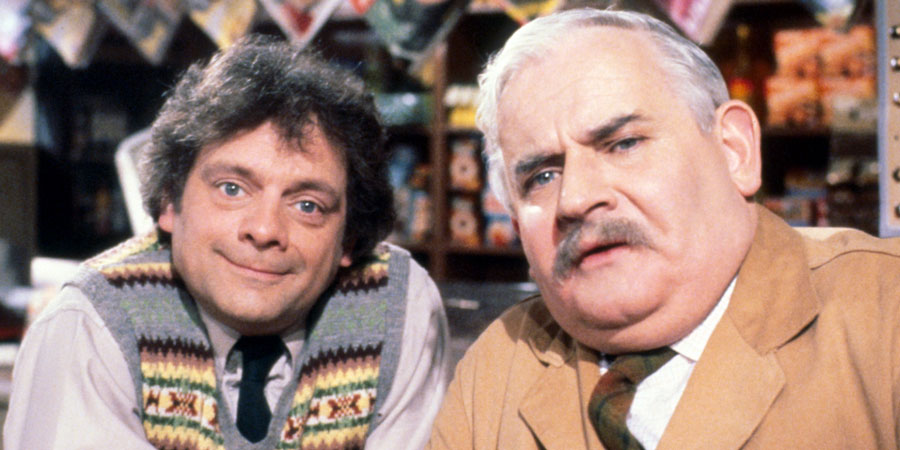
The media bubble we live in is a lot of the same people from the same backgrounds who like these quite acerbic, kind of middle-age comedies. But that's not what I remember growing up, watching with my family. I loved being able to laugh at shows my Grandad laughed at, and we got the same amount of enjoyment out of because it was really well-written and harmless, like a Porridge. Whereas now, there are some things on telly that are just made for other people on telly. People get a little bit insular in the media world and you've got to remember what audiences love: they love The Royle Family and Peter Kay and Mrs. Brown's Boys - things that reflect their lives.
Comedy evokes a lot of passions. If you're a fan of one thing you might hate another. An extreme example: I imagine most fans of Stewart Lee aren't fans of Mrs Brown, but there's no need to get angry about it. No need to vilify the other side. Just live and let live a little bit. We're allowed to have very different tastes. That's part of what the BBC is trying to do, make sure that the best of talents and the strongest of original voices get the chance to share their work. That's the whole point of it. The point of this season is that comedy is not just for Christmas - comedy is for life!
You clearly have a deep love of comedy, sitcom in particular. What're your personal favourites? What did you watch when growing up?
Growing up would be Fawlty Towers, Porridge, Open All Hours, and Only Fools And Horses right at the top of the tree. Then I was of the generation where alternative comedy came in, and was massively into The Young Ones and Blackadder, The Comic Strip... - then as you get older your tastes vary a bit, so I love Vic & Bob, Father Ted and The Office.
Particularly as you get older, I think you have to appreciate different styles of comedy. There's a phase you go through where it has to be about Chris Morris and Armando Iannucci and all the stuff that's very very edgy and irreverent, but that can sit alongside a love of quite mainstream comedy as well. I don't think you have to commit. Like music - you don't have to commit to one genre of music - you can have quite eclectic tastes. I think that's what I have.
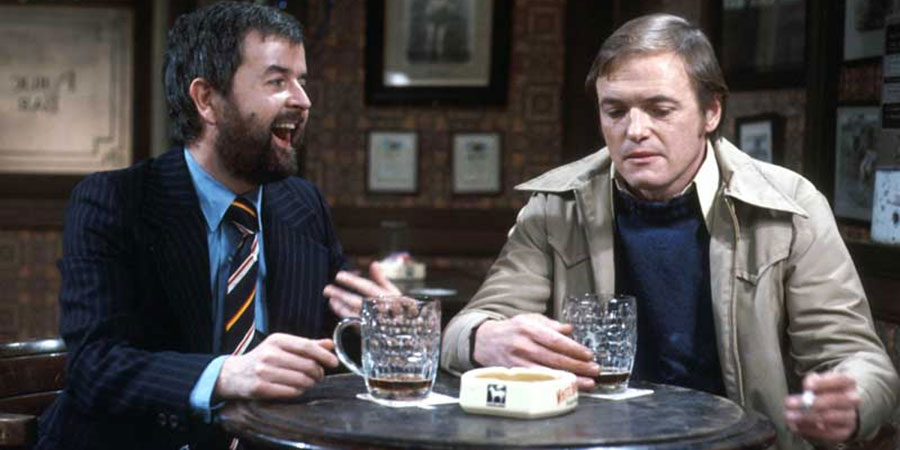
Growing up, if you consider past masters - creators of real comedy masterpieces - like the Roy Clarke work, John Sullivan, Clement & Le Frenais; they're the things that instil your love of comedy from a very young age. It becomes ingrained deep within you. And as I say, growing up I caught the wave of alternative comedy, and then you come full circle and love things like Not Going Out and Peter Kay, and a lot of stuff that's quite mainstream.
That represents a real mix - from the alternative comedy of the 80s, to some really traditional, mainstream shows. Is that what you try to reflect in your commissioning today?
That's something that I love, yeah. Prior to the BBC I worked at Channel 4 and you've got a narrow track there, you're trying to do stuff that's only for a pretty specific type of audience. That young, professional, advertising market. On the BBC however you've got a brilliant range, and it's all about that breadth and quality. Very crudely, on BBC One you're trying to entertain a very broad church of families; on BBC Two you've got the tribes - a tribe who love Charlie Brooker, a different tribe who love Vic & Bob or things like Inside No. 9 or W1A. They're all much stronger flavours, I think.
It's that thing of having a wider offering that's quite eclectic on BBC Two. That same week that we had Mum go out, we had Upstart Crow: an upbeat, noisy, Ben Elton-penned, studio, larger-than-life, colourful character piece. Mum couldn't have been more different in its subtlety and 'sophistication'. People have varied senses of humour.
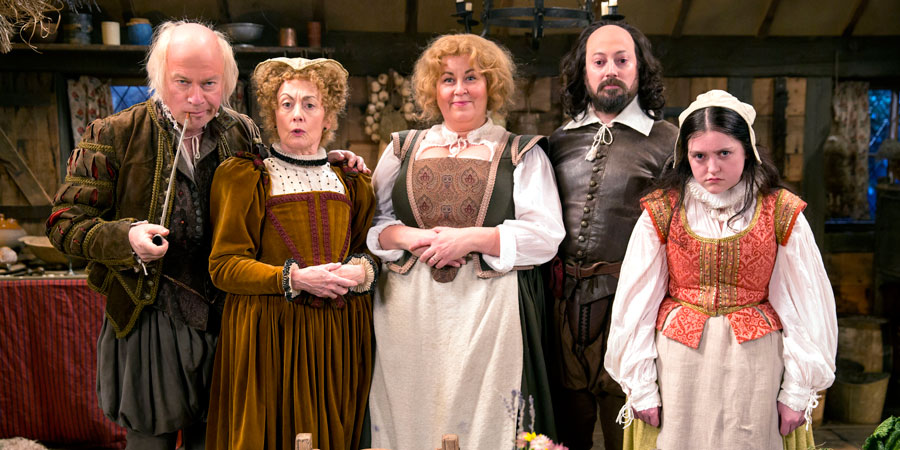
Then on BBC Three we're trying to create a buzz, and to find the next wave of interesting and new talent. Shows like Fleabag, People Just Do Nothing and Josh. And on BBC Four you can have a bit of a play with passion pieces from people like Mackenzie Crook and Detectorists. So it is that huge range, and along that spectrum hopefully there's a show that someone absolutely loves. Other pieces they may not like, but it's about having that range and catering those palates of different comedy tastes.
And then there's radio as well. [My department] doesn't directly look after radio, but they do a lot of great stuff - and of course, online. And we want to help people grow across the channels, like Little Britain did. Ultimately some things will feel like they should move into a more mainstream space and other things will feel very comfortable just being a cult hit.
The BBC has a real history of great sitcoms. Some of the people responsible for them - who never appeared on-screen, but channel controllers and commissioners, like Sir Paul Fox, Sir Bill Cotton and Tom Sloan - are celebrated and known in their own right. Do you feel pressure from that history, that legacy, to add to that list; even to become a name yourself?
At the end of the day, we're sort of a filter. It's about backing the best talents. Attracting the best talent in the first place, and backing them. Comedy isn't a massively commercial thing; ITV has sort-of given up on it in the last decade. You need to kiss a lot of frogs to get those hits, and I don't think that the BBC's commitment has ever wavered in that. Even when I was at Channel 4, when the advertising money started to look bad, comedy was the first genre that would get shrunk.
Here there is a huge commitment, and the responsibility of that legacy, and people like Tom Sloan - who's a personal hero, the guy who commissioned all of those shows about the social realism and change of the 1960s - that pressure, I feel it, but at the end of the day it's about backing the talent because they're the people that the audience take to heart. Bringing Peter Kay over to the BBC and helping him connect with the BBC One audience - I see that as a responsibility.
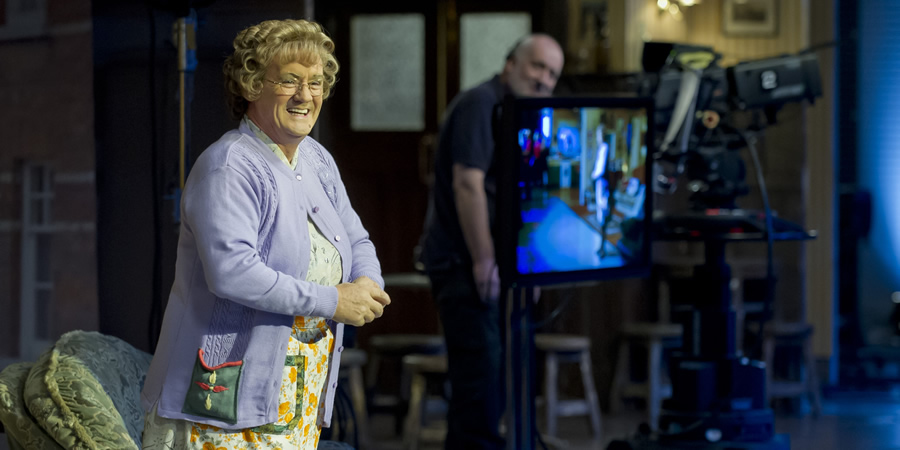
Likewise Brendan O'Carroll was very nervous about doing Mrs Brown live, but he's earned it. He's amazing, he's got all these years of performing a live show, he can do this; and that's the thing, to leave something behind. You want to have launched some careers and brought some other careers on, and you want to have created an environment where great sitcoms can get made and people don't feel that there are barriers, oppression or censorship, nothing like that.
One of my favourite examples of BBC libertarianism is W1A. If someone's going to lampoon the BBC, it should be the BBC. That's just a sign of confidence, I think. A sign of enabling these writers and saying "you can come here to do your best work and we will support you, give you really good slots, and we will champion you". You've got amazing marketing and press teams at the BBC. This is what it's all about: finding that new wave talent, recognising existing talent - like Roy Clarke, Dick Clement and Ian Le Frenais - and saying "come here and do your best work".
It's the audiences who will decide how popular these shows are.
What's your message to people who aren't currently "in" at the BBC, who might just be starting their careers - what should they be developing, what are you looking for?
For kind of entry-level talent, newer people, then you've got to be looking at where the opportunities are. Look at things like Comedy Feeds, Radio 4, the different competitions on the Writersroom. Look where the opportunities lie. Comedy Feeds has been great in bringing some very new talent through. Those have to be attitudinally quite young.
It's really about watching the channels, soaking up the comedy, knowing who the audience is for each. Absorb what all those shows are. And see what's not on as well. You can get a good idea for each channel's tone, but an original idea is still going to knock someone's socks off. People Just Do Nothing, those guys were making their show online in their own way. They got paired up with Roughcut and went on to get a BAFTA nomination.
If you're a talent, a writer-performer or a writer, then six half-hours on BBC One might be a bit of an ambitious leap but you can certainly pull towards that with Radio 4 or, as I say, BBC Three. Elliott Kerrigan who wrote Boy Meets Girl was a first-time writer who came through the Writersroom and a competition that was run. So just keep your ear to the ground.
The BBC's Landmark Sitcom Season begins at 9pm on BBC One on Sunday 28th August. More details
Help us publish more great content by becoming a BCG Supporter. You'll be backing our mission to champion, celebrate and promote British comedy in all its forms: past, present and future.
We understand times are tough, but if you believe in the power of laughter we'd be honoured to have you join us. Advertising doesn't cover our costs, so every single donation matters and is put to good use. Thank you.
Love comedy? Find out more